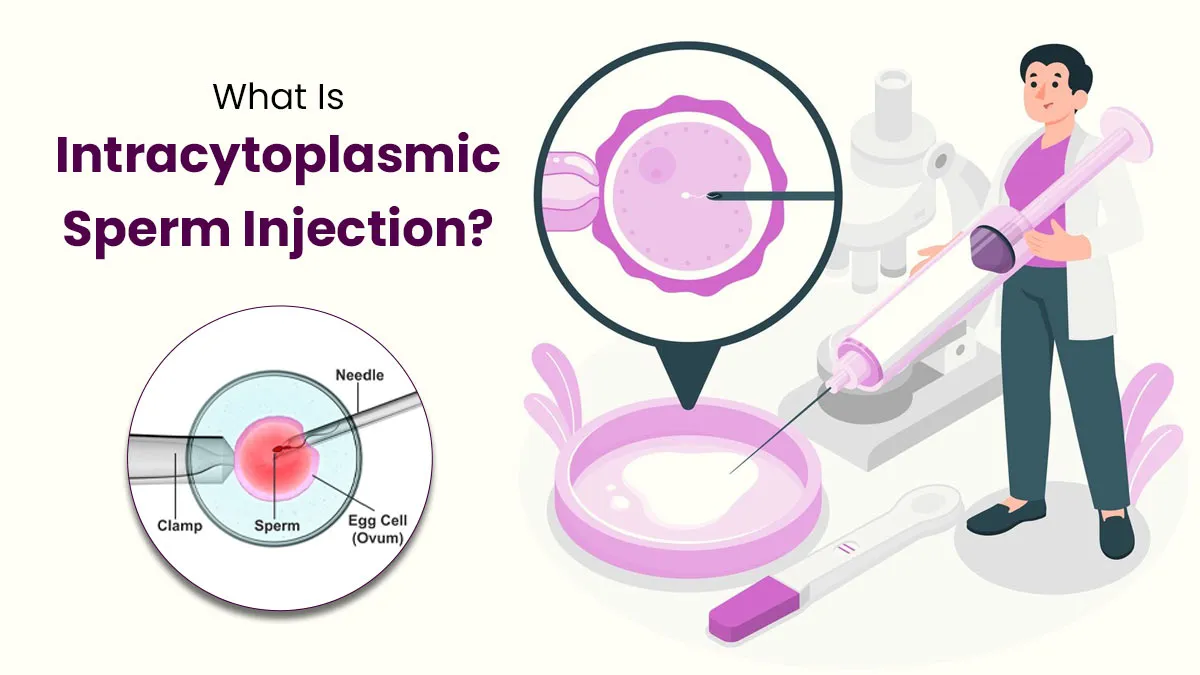
Advanced medical technologies have introduced fresh treatment options for elusive couples trying to become pregnant. The breakthrough known as Intracytoplasmic Sperm Injection (ICSI) serves as a specialised variant of in vitro fertilisation (IVF) that has completely changed our strategy for dealing with male infertility. A gynaecologist explains that ICSI functions as a secure approach to achieve conception for millions of couples who bear healthy infants. Many people recognise ICSI as their source of hope but the technique remains mysterious to most because of its scientific functioning. Read ahead as an expert explains the essential aspects of this modern tool for enhancing fertility.
Table of Content:-
What Is ICSI and How Does It Work?
View this post on Instagram
Dr Saloni Patil, Consultant, Dr Patil’s IVF and Fertility Clinic, Mumbai, describes Intracytoplasmic sperm injection (ICSI) as a precise and efficient IVF technique: “In ICSI, a single sperm is injected directly into the cytoplasm of the egg to facilitate fertilisation. This method bypasses natural barriers like poor sperm motility or count.”
Here’s how the ICSI process works:
- Egg Retrieval: The mature eggs collected from the female partner result from the controlled use of fertility medications during ovarian stimulation.
- Sperm Selection: It depends on microfluidic chips or magnetic-activated cell sorting (MACS) to pick one healthy sperm from the male partner’s sample.
- Injection: A trained specialist performs microsurgical injection of chosen sperm into eggs through a thin needle while using a high-powered microscope.
- Fertilisation and Embryo Development: The resulting embryo from the fertilised egg receives placement into the woman's uterus for implantation.
ALSO READ: What Is Spermatorrhea? Exploring Its Causes, Symptoms, and Treatment
Who Can Benefit from ICSI?

ICSI is recommended for couples facing:
- Male Infertility: Issues like low sperm count, poor motility, or abnormal morphology.
- Previous IVF Failures: When fertilisation did not occur in earlier IVF cycles.
- Unexplained Infertility: Cases where no clear cause of infertility has been identified.
- Frozen Sperm Use: When using cryopreserved sperm samples with lower viability.
Addressing Misconceptions About ICSI
Dr Patil addresses common concerns about ICSI: “There have been claims linking ICSI to ADHD, autism, or genetic defects in babies, but these are unfounded. The risk of abnormalities is no higher than with natural conception.” She adds that many couples undergoing ICSI have had healthy pregnancies and babies.
A Study on ICSI Success Rates
A study published on PubMed examined the success rates of ICSI compared to traditional IVF methods. Researchers found that ICSI significantly improved fertilization rates in cases of male-factor infertility, with success rates ranging from 70% to 80%. The study also confirmed that the health outcomes of babies born through ICSI were comparable to those conceived naturally, debunking myths about increased risks of birth defects.
Pros and Cons of ICSI
-1741169949881.jpg)
The medical intervention of ICSI offers its patients both positive and negative characteristics alongside its established limitations.
Pros:
- The success outcomes for male infertility treatment are significantly high.
- This method enables conception when there are only limited sperm cells that function properly.
- The method delivers secure results which physicians have established over many decades.
Cons:
- ICSI comes with higher treatment expenses than normal IVF methods.
- Requires specialised equipment and expertise.
- ICSI treatment proves unnecessary when male infertility does not exist in a case.
The fertility specialist Dr Patil tells couples that consulting for individual case analysis is essential to deciding about ICSI suitability.
Conclusion
Intracytoplasmic Sperm Injection (ICSI) has transformed the landscape of fertility treatments, offering hope to couples struggling with infertility—especially male-factor issues. By consulting a qualified fertility specialist and understanding your options, you can make informed decisions about whether ICSI is right for you. With advancements in reproductive medicine, starting or growing your family is more achievable than ever before!
Also watch this video
How we keep this article up to date:
We work with experts and keep a close eye on the latest in health and wellness. Whenever there is a new research or helpful information, we update our articles with accurate and useful advice.
Current Version